There’s a difference between just eating outside and enjoying a nice meal in the wilderness. Here are a few tips to take your trail food to the next level.
Food Hacks from a Long-Distance Hiker
I’ll start this article off with full disclosure: I’ve only been on a few multi-day backpacking trips and I’m a bit of an over-packer—especially when it comes to food. However, I’m lucky enough to have several friends and coworkers who have spent months at a time in the backcountry.
I began with my friend Julie Hotz. She’s completed the Pacific Crest Trail and the Pacific Northwest Trail (which she prefaced with a bike ride from L.A. to the trail’s beginning in Glacier National Park, Montana). Needless to say, when she gives me advice about backpacking, I take it. Here are a few of her favorite backpacking food hacks she’s learned over the years:
1. Cook Effectively
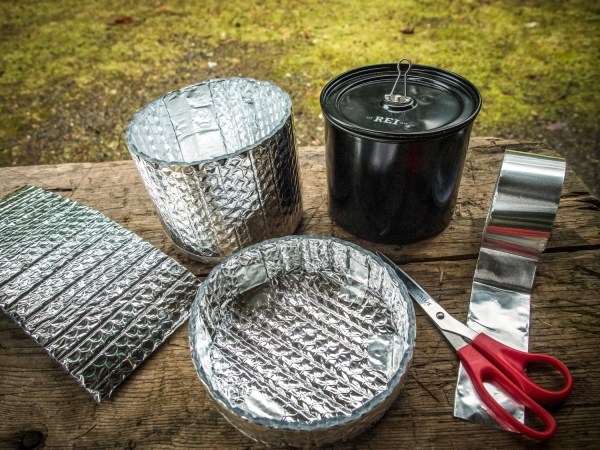
Lightweight reflective insulation or backpacking stove windscreens makes an excellent cozy for your cookpot and lid, allowing you to cook more meals with less fuel. Julie said, “I’ve made a 4 oz. can of fuel last 10 days, cooking one meal a night and having one or two cups of tea a day!”
2. Dirt Don’t Hurt
Alright, this one may take some getting used to for hand sanitizer aficionados, but dirt makes a fantastic scouring agent. When cleaning your cookpot, clean it out as much as possible with your eating utensil, then add a little water and a handful of dirt, scrub around and rinse. Dirt absorbs oil and scrubs dishes clean like a champ. Plus, it’s all-natural and eco-friendly! (Note: Don’t use this method for cleaning on teflon-coated cookware. It could damage the nonstick coating.)
3. Plate and Pan in One
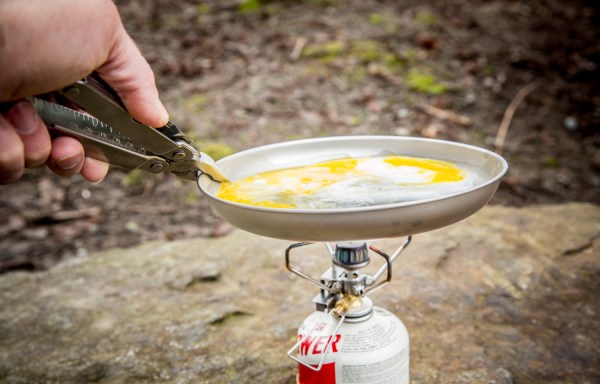
This one is easy. If you carry a metal plate like a Snow Peak titanium plate, it can also double as your frying pan! Just use the pliers from your multi-tool as the handle.
4. Bread Baskets
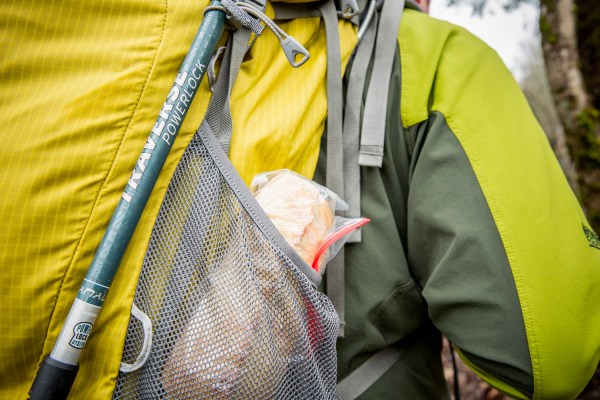
The mesh water bottle pockets you find on many backpacks are perfect for holding a loaf of bread without smashing it.
5. Instant Milkshake
Reward yourself on your first day out with a delicious milkshake. Just grab a pint of ice cream right before you start hiking, seal it in a bag, wrap it with an insulating layer and in a few hours, open it up and enjoy.
6. Go Stoveless
For shorter trips, opt for fresh foods, to-go items or other snacks that don’t require cooking.
7. Instant Coffee, Instantly
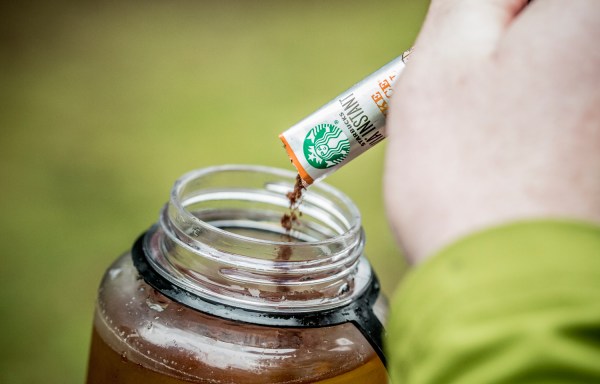
Instant coffee, like Starbucks Via, doesn’t have to be served hot. Make chilled coffee by shaking it up with cold water.
7. Brew on the Go
Place a tea bag in a full water bottle and strap it to the outside of your pack. After a few hours, you’ll have delicious sun tea. Julie says, “Most herbal teas work really well. Peppermint and turmeric teas are my favorite.”
8. Don’t be Afraid to be Cheesy
As it turns out, cheese doesn’t always have to be as refrigerated as we think. Harder cheeses, like sharp cheddar, aged gouda and parmesan, keep fairly well in warmer temperatures. For cold-weather expeditions, you can go with softer cheeses like brie.
9. Dehydrate at Home
What would be better on the trail than your favorite homemade meal? Pick up a food dehydrator and do it yourself! Pro tip: Fat doesn’t dehydrate well. Cook with as little fat as possible, then pack a little bit of butter or oil to add in later.
10. See it, Eat it
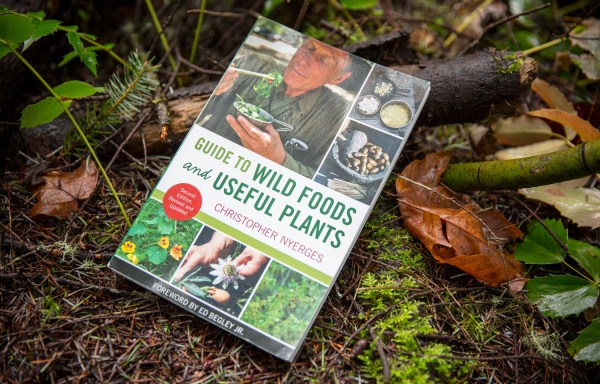
Learn which native plants are edible and which are poisonous. You can eat many roots, greens, mushrooms and fruit. What could be better than fresh, organic foods that you don’t have to carry?
11. Sprout on the Trail
Bring your garden along with you. Julie says, “Alfalfa seeds work great. Have a little sprouting bag, and dip the bag and seeds a few times a day into flowing water sources. After a few days, once they’ve sprouted, rinse with filtered water and munch on a fresh healthy snack!”
12. Have Fun!
Julie sums it up best: “I think the biggest food hack really is having fun and realizing that you can bring way more than you think, as long as you’re willing to carry out the trash. I’ve seen people carry a carton of eggs up a pass and cook bacon and eggs at the top, because they can. I once carried frozen spanakopita and a tub of whipped butter (in double ziplocs) and fried the dish in butter in my ultralight frying pan.”
Next up, one of my friends who is a veteran of the AT and the PCT, Emory Marshall, sent me his favorite backpacking food hack:
13. A Hearty Meal is a Good Meal
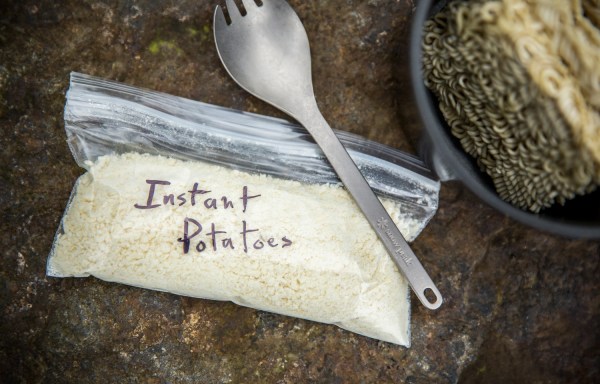
Always bring some instant potatoes in your food bag. You can add them to almost any noodle dish (like ramen or mac & cheese) to thicken it up and add more flavor. For thru-hikers, it’s a great way to add some calories. Want more tips on planning a good meal? Check out our Meal Planning Tips for Backpacking.
A few more backpacking food hacks came from some of my coworkers at REI:
14. Air it Out
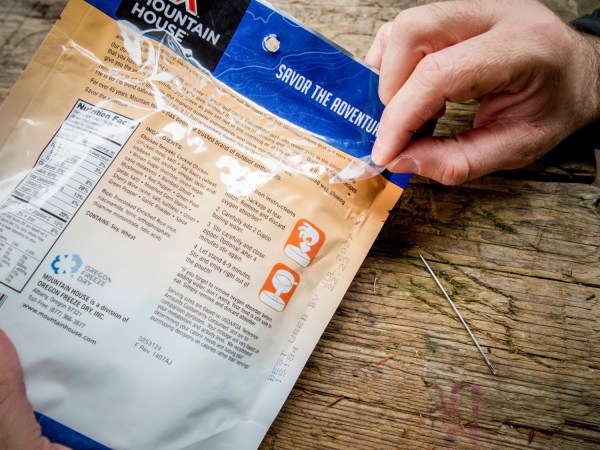
If any of your food is packed with air (think a potato chip bag or a dehydrated meal), poke a hole in it, release the air and then seal the hole with tape. This will make the package smaller. Be mindful of where you place the hole if you plan on using the bag later.
15. Brew Coffee like Tea
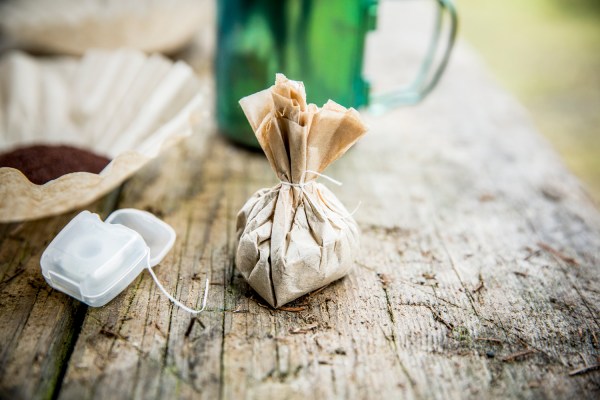
For some of us, coffee is about as important as a sleeping bag when backpacking. If you’re not a fan of instant coffee, here’s a quick way to brew a delicious cup of joe:
- Pour a few ounces of ground coffee into a coffee filter.
- Fold the filter up to create a small pouch, tying the top of it with dental floss.
- Boil water and pour it into your mug.
- Place your coffee “tea” bag into your mug and let it steep for about 2–3 minutes.
- Remove the bag and enjoy!
As always, don’t forget to pack in and out by practicing leave no trace principles.
Did we miss an essential backpacking food tip? We’d love to hear it. Please share in the comments below.
